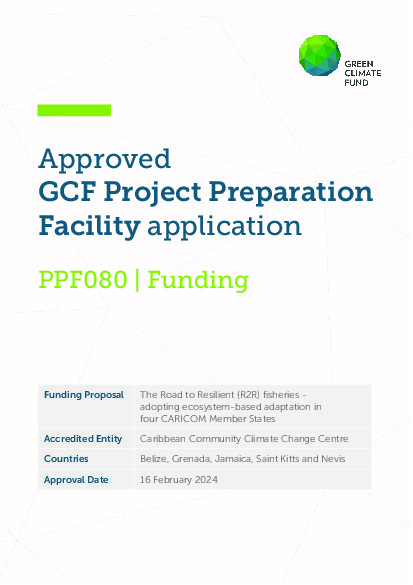The Road to Resilient (R2R) fisheries - adopting ecosystem-based adaptation in four CARICOM Member States

The Road to Resilient (R2R) fisheries - adopting ecosystem-based adaptation in four CARICOM Member States
As island and coastal states, Caribbean countries depend heavily on marine ecosystems for critical ecosystem provisioning, regulating, cultural, and supporting services such as the provision of food, shoreline stabilisation and protection, tourism, recreation, and habitat for commercially important fish amongst others. The Caribbean’s main marine ecosystems- coral reefs, mangroves, and sea grass beds- have suffered under climate stressors such as increased sea surface temperature, ocean acidification and extreme weather events. The impacts of these stressors jeopardize the ecosystems’ critical services. Caribbean governments have recognized the implications and through national policies, plans and commitments have prioritized safeguarding coastal and marine resources. For instance, on a regional level, Member States of the Caribbean Community (CARICOM) have pinpointed “integration of ocean governance into decision making” as one of the eleven climate change priorities for the region.
As a contribution to this overarching regional goal, the proposed programme titled “The Road to Resilient (R2R) fisheries- adopting ecosystem-based adaptation in four CARICOM Member States” seeks to increase the resilience of coastal and marine resource users to climate risks by adopting ecosystem-based solutions in marine managed areas (MMAs). The programme targets the Caribbean countries of Belize, Grenada, Jamaica, and St. Kitts and Nevis and pursues three key outcome areas: improved MMA management via the natural capital approach, implementation of ecosystem-based adaptation initiatives and a Technical Assistance Facility (TAF), and increased knowledge and strengthened knowledge management.